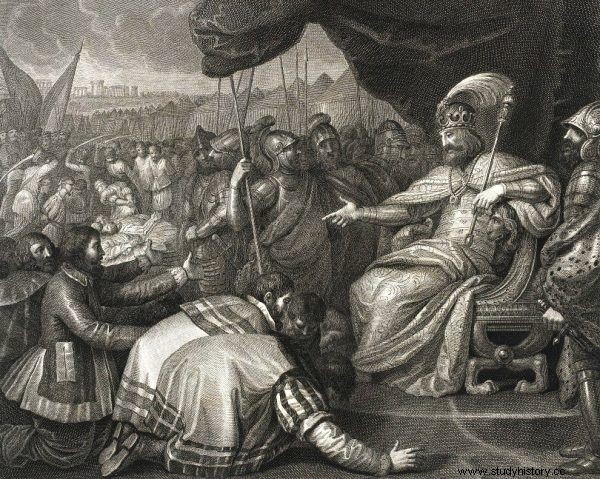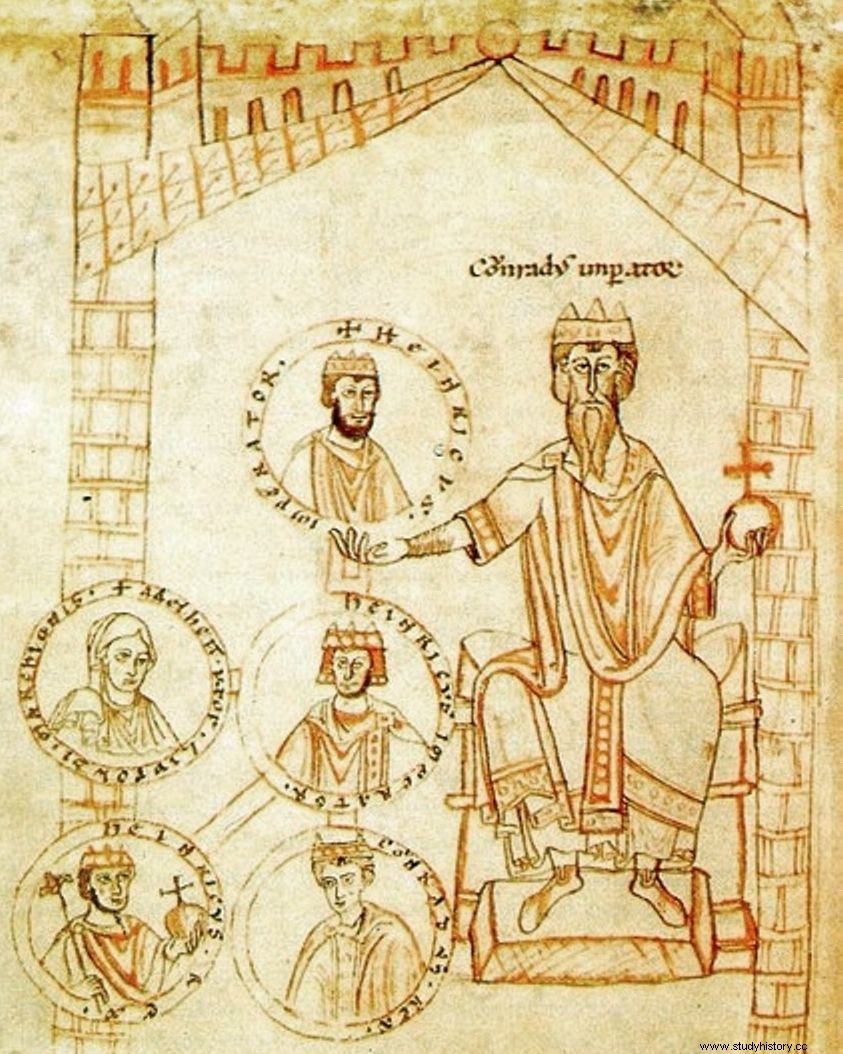It is easy to imagine a medieval leader smashing enemy bodies, looting villages and ordering executions. But what about the prince, who by the way ... cries like a beaver?
This question is by no means rhetorical. It bugs itself when reading the chronicle of the German bishop Thietmar. A peculiar scene is played out in the seventh book of the famous work.
The year is 1015. The heir of the Polish throne, Mieszko II Lambert, defends the state border against the next in a series of expeditions of King Henry II. He loses the fight, but retreats in formation and keeps the soldiers' obedience. And just then, right after the battle, he does something completely unexpected. We learn from the chronicler that the German magnate Hodo, who was friends with Mieszko, was killed in the fight. Seeing his corpse, the proud, ruthless leader… bursts into mournful tears.
Where did these tears come from?
Historians have interpreted the described event differently. According to some, it was a completely natural, human, though perhaps not fully thought out reaction. Others made their judgments much less understanding.
They argued that Mieszko had shown weakness and proved at this early stage that he was unfit for rulership. If he cried on the battlefield, he was obviously a neurotic, shaken by unrestrained mood swings. He brought shame to his father and the princely title. What was it really like?

Historians would prefer to see such a dignified Mieszko II instead of a pax. Only is it right? Copperplate engraving by Angela Campanelli based on a painting by Franciszek Smuglewicz showing Mieszko II punishing Pomeranians (source:public domain).
First of all, it must be firmly stated that the described scene probably… did not happen at all. Thietmar described the battle from the perspective of the Germans. He had no right to know what was happening in the Polish camp and it was after the fight. If he attributed tears to Mieszko, it was because he liked him.
Several different fragments of his chronicle suggest that the bishop knew the prince's son and considered him a cultured and honorable man. For the real opposite of his father, the "treacherous" Bolesław the Brave. In this particular storyline, he made him a crybaby, because that was exactly what a civilized ruler was expected to do in the early Middle Ages.
Rulers are crying
There are many examples. Kings and princes cried very often and very bitterly. But most of all:they cried politically. Let's take two bloodthirsty Vikings, brothers Harald II and Canute the Great. When their father died in 1014, the men grew up to prepare for a civil war. They both wanted to rule over Denmark. There was a last chance meeting, and then the younger Canute… burst into tears.

Emperor Conrad II as the progenitor of the dynasty. Hardly anyone remembers that his accession to the throne was drenched in tears (source:public domain).
According to historians, it was a deliberate gesture of reconciliation. The pretender to the throne publicly showed that mourning his father and respect for the rules of inheritance are more important to him than the lust for power. The intended effect was achieved:Canute did not receive the Danish throne, but his brother supported him in his expedition to England.
The German king Konrad II was crying even more ostentatiously. For the first time - during his coronation in 1024. It was a carefully prepared spectacle. On the way to the Mainz Cathedral, the royal procession was stopped by petitioners, begging for grace. At one point, an unknown magnate named Otto appeared before the ruler.
From the chronicler reporting the event, we learn that the man once greatly offended Konrad. Now, as he was getting ready to take his place on the throne, Otto begged for grace and forgetting his sins. The king "sighed heavily, burst into tears and fulfilled the wish supported by all the gathered people." Then everyone around me also burst into tears of joy!
Following the example of the best
In this way, they imitated the best practices. According to Songs of Roland Charlemagne, upon hearing that his nephew had died in battle, "lowered his head, stroked his chin, curled his mustache, and finally burst into tears." The first emperor of the reborn Frankish empire, Otto I the Great, was also in tears. He cried after both his son Ludolf and his mother Matilda died.
Chroniclers and hagiographers almost always attributed the ability to cry to positive heroes. At the turn of the millennium, it was not a sign of weakness, but of devotion to God, forbearance, and humility. Above all:civilization.
Barbarians and pagans did not understand the ritual role of crying. Tears as a symbol characterized people of Western culture. And if it was written about Mieszko that he cried, apparently even Bishop Thietmar, biased against the Piasts, considered him to be a 100% Christian ruler.
Sources:
The article is based on the literature and materials collected by the author during the work on the book "Iron Ladies. The Women Who Built Poland ” .
 We recommend:
We recommend:
The above column also appeared in the latest issue of the "Focus Historia" magazine (5/2016).
